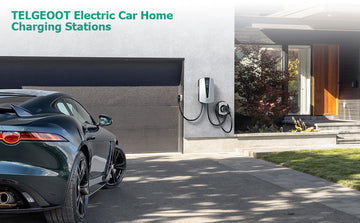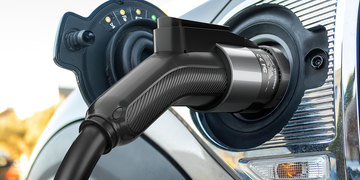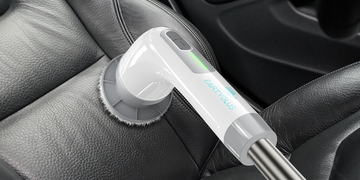How much power is needed for EV charging at home? About 7,200 watts, Generally, electric cars charged at home use about 7,200 watts (W) of electricity, which can vary depending on the mode and home charger. Most electric car chargers use between 32 and 40 amps and connect to a 240-volt outlet in your home's breaker box. Unlike traditional gasoline-powered vehicles, EVs rely on electricity, making home charging setups crucial for daily use. However, understanding the power requirements for EV charging at home is essential to ensure a seamless charging experience. Let's delve into the factors that determine how much power is needed for home EV charging.
Types of Home Charging
Before diving into power requirements, it's important to grasp the two main types of home EV charging: Level 1 and Level 2.
Level 1 Charging: This involves using a standard 120-volt household outlet, typically found in garages or driveways. Level 1 charging is the slowest method, providing around 2-5 miles of range per hour of charging. It's suitable for overnight charging or for EVs with small battery capacities.
Level 2 Charging: Level 2 charging utilizes a 240-volt outlet, similar to what's used for large appliances like electric dryers or stoves. Level 2 chargers are faster, delivering approximately 10-60 miles of range per hour, depending on the EV and the charging station's power output. This option is ideal for faster charging at home, especially for EV owners with longer commutes or larger battery capacities.
Power Requirements
The power requirements for home EV charging depend on several factors:
Charging Rate: The charging rate, measured in kilowatts (kW), determines how quickly an EV's battery can be replenished. Higher charging rates require more power. For Level 1 charging, the power requirement is relatively low, typically ranging from 1.2 kW to 1.9 kW. In contrast, Level 2 charging stations can range from 3.3 kW to 19.2 kW or more, depending on the charger's capacity and the EV's onboard charger.
EV Battery Capacity: The size of the EV's battery directly impacts the charging time and power requirements. Larger battery capacities require more energy to charge fully. For instance, charging a compact EV with a smaller battery will consume less power compared to charging a long-range electric SUV with a larger battery.
Charging Time: The duration for which the EV will be connected to the charging station also influences power requirements. Longer charging times allow for slower charging rates, reducing the immediate demand for high power.
Calculating Power Requirements
To calculate the power requirements for home EV charging, follow these steps:
Determine Charging Rate: Identify the charging rate of the EV and the charging station (Level 1 or Level 2).
Estimate Charging Time: Decide how long the EV will be connected to the charging station to reach the desired state of charge.
Calculate Power Requirement: Multiply the charging rate (in kW) by the charging time (in hours) to find the total energy consumption in kilowatt-hours (kWh).

Considerations for Installation
When installing a Level 2 charging station at home, several considerations come into play:
Electrical Capacity: Ensure that your home's electrical system can support the additional load. Upgrading may be necessary to accommodate higher power charging stations.
Charging Station Compatibility: Choose a charging station that is compatible with your EV and offers the desired charging rate.
Location: Select a suitable location for the charging station with access to the electrical panel and adequate ventilation.
Telgeoot EV Charger saves charging costs
Ultra-Low Electricity Rates
EV Charger has been equipped with multiple safety protections, Over Voltage protection, Overload protection, Short Circuit protection, Ground protection, Earth Leakage protection. This ev charging station unit can operate in environments of -30℃ to 55℃ (-22°F to 131°F). The connector operating life is up to 10000 times. Allows to adjust charging current range from 1 to 48A, level 2 EV 240V 11kw home charger can work 7X faster than a normal Level 1 chargers, Say goodbye to long charging times.
The Telgeoot EV Charger stands out as an innovative solution for homeowners looking to cut down on charging expenses. Whether opting for Level 1 or Level 2 charging, considering factors such as charging rate, EV battery capacity, and charging time will help determine the optimal setup for your home. With its advanced charging technology and smart features, the Telgeoot charger optimizes energy consumption, ensuring efficient charging that translates to lower electricity bills. Whether by scheduling charging sessions during off-peak hours or prioritizing clean energy sources, the Telgeoot EV Charger offers a compelling way for EV owners to save on charging costs over the long term, making it a smart investment for sustainable and economical home charging solutions.





